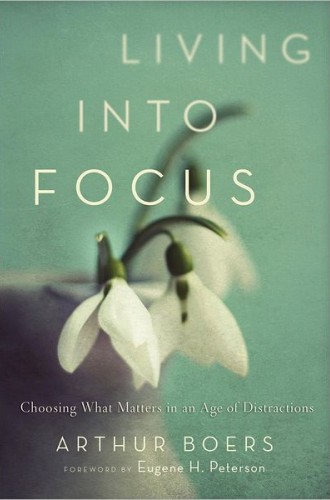Living into Focus, by Arthur Boers
My fifth-grade son used to walk around the house pretending to be texting. Rehearsing what has become a central practice of 21st-century life, he would move his thumbs across a cast-off cell phone that no longer worked. Finding no solace in the fact that he had the rest of his life to be beholden to gadgetry, he had decided that feigned distraction was better than no distraction at all. Then, on his 11th birthday, having obtained grudging parental permission, he promptly gutted his savings and bought an iPod Touch.
Arthur Boers’s book popularizes the work of philosopher Albert Borgmann, whose writings about technology’s command of everyday life, produced three decades ago, were uncannily predictive of my son’s milieu: in one survey almost half the kids ages six to 12 said they wanted an iPad for Christmas. Borgmann’s 1984 treatise outlines what he calls the “rule of technology,” according to which “engagement with things” is exchanged for “the consumption of commodities.” Borgmann also introduced the idea of “focal concerns”: things, practices and places that “center and illuminate our lives.”
It is this second idea on which Boers’s book turns: how focal practices such as preparing and eating meals together, gardening, hiking or playing a musical instrument can orient us in an age of disorientation and distraction. Boers interviewed a dozen or so people about the hobbies through which they find meaning and joy, and he sprinkles their stories throughout his book. He also describes his discovery of hiking as an adult and the renovation of a kitchen to make it more central to his family’s life as experiences of uncovering focal practices and places. “When I thought of hiking as only a hobby or of our congenial kitchen as merely a luxury, it was easy for me to overlook their importance,” he writes. “But when I understood that they were focal practices, I began to take them more seriously, to be committed to them, and to make sure that I made space for them in my life.”





